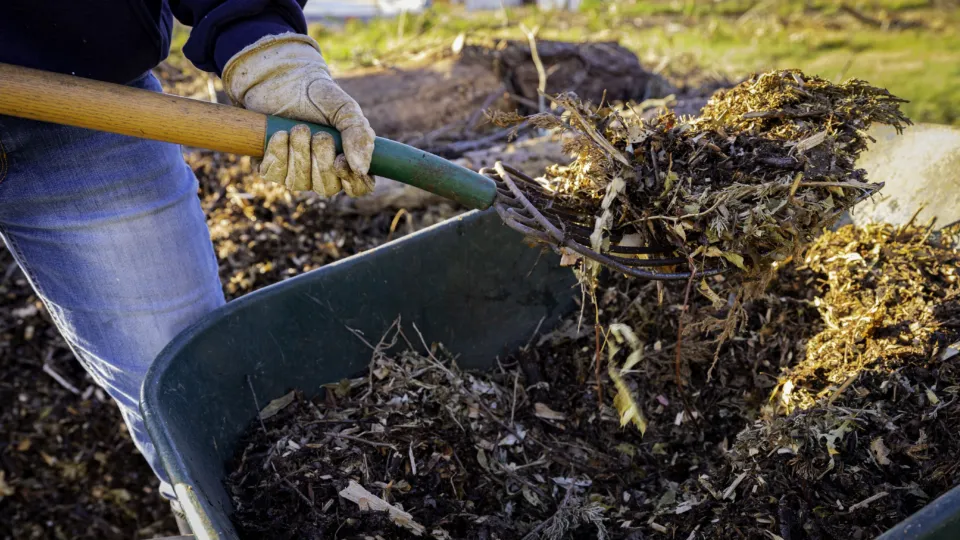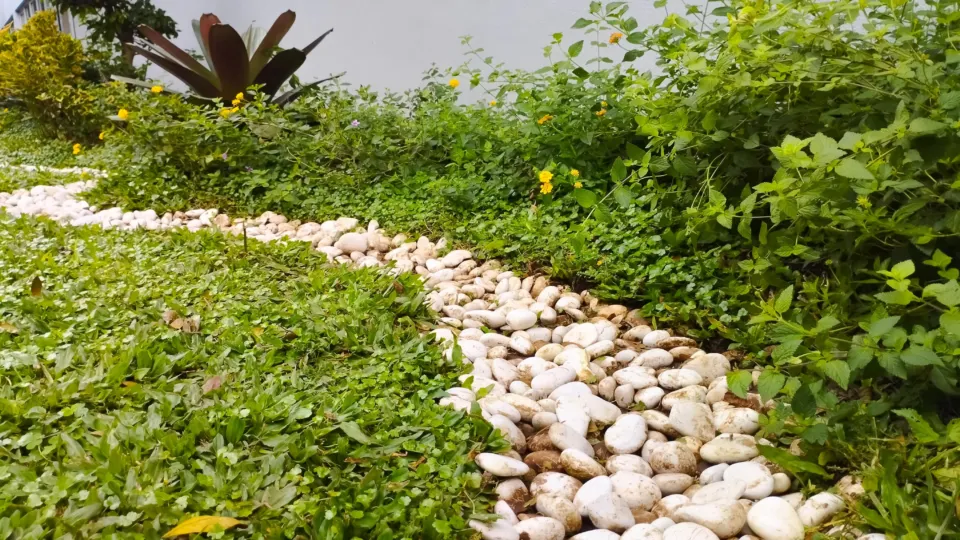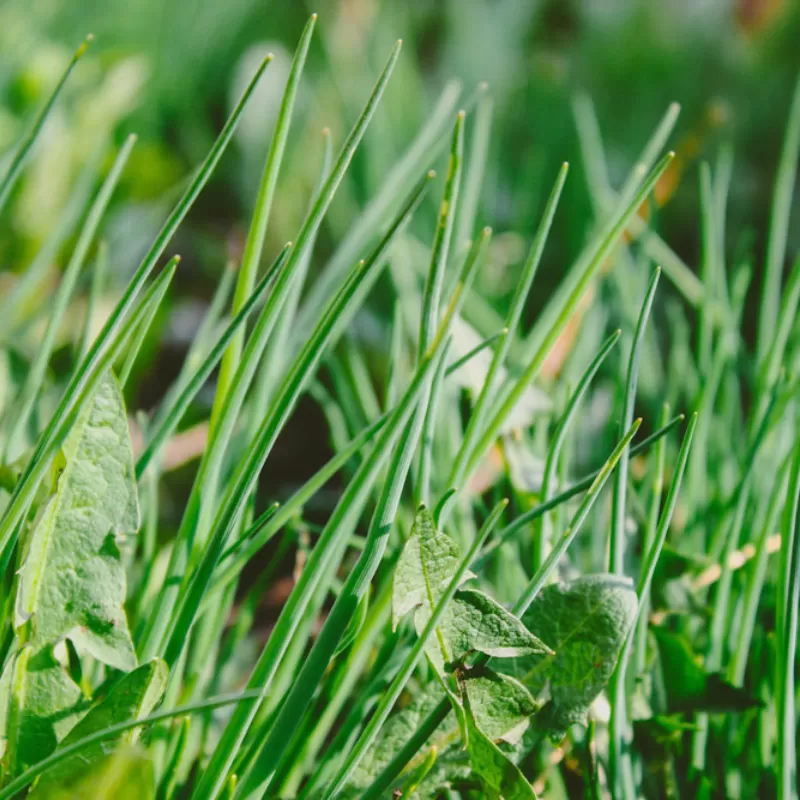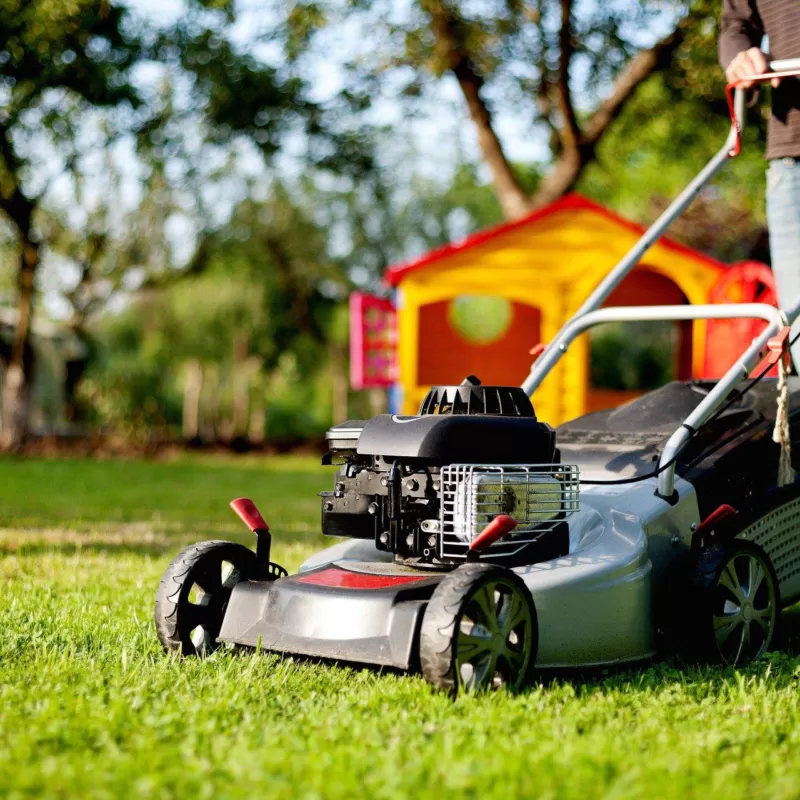What Is Mulching and When Should You Do It?
What Is Mulching and When Should You Do It?
Mulching is a great technique to really maximise the potential of our gardens. This secret weapon naturally suppresses weeds, retains moisture, insulates roots and it even adds a touch of decorative flair! Whether you’re a seasoned gardener or a newbie in garden, we’ll help you navigate through what mulch is for your garden, including the different types, how to use and the benefits of this trusty technique. Let’s dig in!
What Are the Different Types of Mulch?
There are two types of mulches that are frequently used in the garden, biodegradable and non-biodegradable. Though they have different uses, both mulch types are placed on the soil surface to improve growing conditions of certain plants. Generally, darker coloured mulch materials will make soil warmer as it absorbs the heat, whereas light coloured materials reflect sunlight and are great for lettuce and spinach crops, where the roots need to stay cool.
Biodegradable Mulch:
Biodegradable mulches are designed to gradually break down and release a bunch of nutrients into the soil. However, once they have fully rotten down, they will need to be replaced in order to start the cycle again and help your plants thrive! Our favourite biodegradable mulches are:
- Garden Compost
- Wood Chipping
- Processed Conifer Bark
- Straw (for strawberries)
- Grass Clippings

Non-Biodegradable Mulch:
On the other hand, non-biodegradable mulches do not impact the structure of the soil, but they do suppress the weeds, conserve moisture and add a decorative look to your plants. For this, we like to use:
- Pebbles
- Gravel
- Stone Chipping
- Tumbled Glass
- Landscape Fabric – Rubber Mulch

The Benefits of Mulching:
Mulching is a notable technique to use as it has a ton of benefits, not only to your plants but yourself too! Mulch acts as a natural moisture regulator, preventing water loss from the soil through evaporation. When it’s paired with one of our SMART irrigation systems, you’ll be saving time and money whilst your plants are thriving! Mulch is also a great tool to supress weeds. This is due to the barrier it forms over the soil, inhibiting weed growth by depriving them of the conditions needed for them to germinate. In turn, this reduces the need for regular de-weeding sessions and helps maintain a tidy garden.
Biodegradable mulches have further benefits. Providing the food for a really active environment, these mulches produce nutrients for plants, encourage worms and other soil fauna- some of which can help to control pests and attract wildlife into your garden. As biodegradable mulch decomposes, the soil becomes enriched with the essential nutrients needed for plants to grow. Plus, as the soil structure improves, you are left with healthier, more fertile soil which produces healthier plants and stronger roots. Likewise, mulch is a great plant protector as different types can protect plant roots from extreme weather conditions. Acting as a natural insulator, mulch is used to moderate soil temperature fluctuations. In colder temperatures, this gardening technique provides a protective layer that prevents roots frosting over, while in warmer temperatures it keeps soil cool and prevents overheating by reflecting heat.
Get The Most Out of Your Plants
Different mulches work for different crops and it’s important to identify the right materials for your specific needs. Factors such as plant type, climate and even aesthetic need to be considered before implementing this practice. Our resident gardener, George, recommends preparing any soil beforehand. Fork out weeds, rake the surface and make sure your surface is level before adding around 2-4 inches of mulch to your vegetable beds or around key plants. Anything more than this can cause growth issues for your precious crops.
When Is the Best Time to Mulch Your Garden?
The optimum times to mulch your garden are the spring and autumn seasons. Although, as we enter the main growing season, April is the ideal time to utilise biodegradable and organic materials; this is because the soil is moister and packed with those good nutrients. By incorporating this simple yet powerful practice into your gardening routine, you’ll not only save time and water, but with our SMART Irrigatia systems, you’ll witness your plants flourish, bursting with vibrant health and delicious yield. So, grab your favourite mulch and unleash the magic of mulching in your garden today!
Now that you know what mulching is in the garden, you can find more gardening advice on our blog and don’t forget to follow our Instagram and Facebook accounts to keep up to date with the latest projects in the Irrigatia Garden.
Looking to upgrade your garden this spring? Shop our C12L irrigation kit for small to medium gardens, or our C24L irrigation kit for larger gardens, and make sure your plants always have the perfect amount of water, right at the root.


